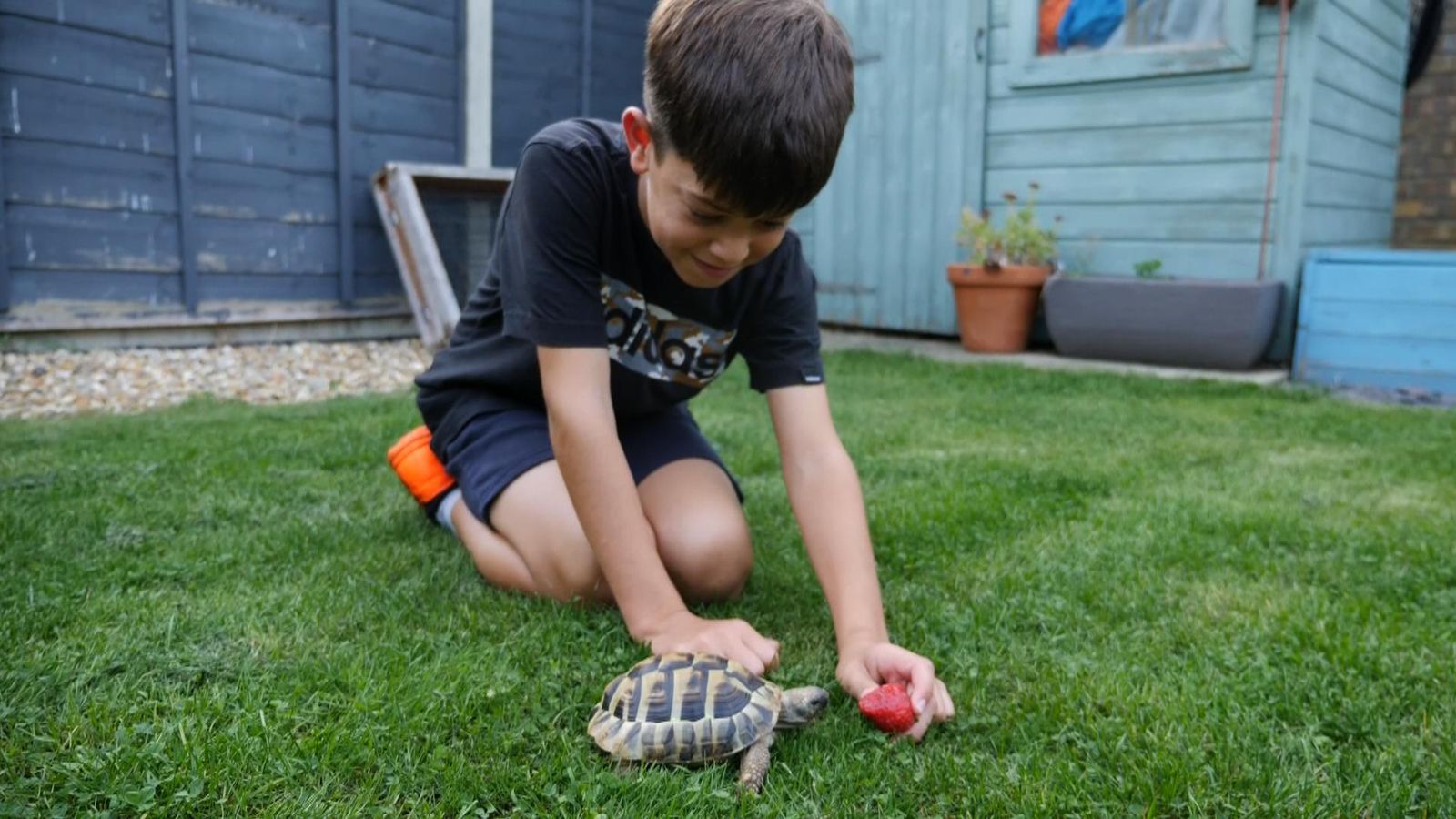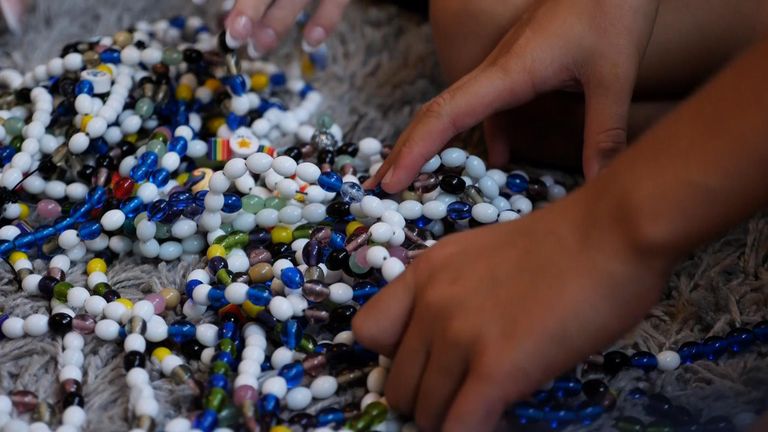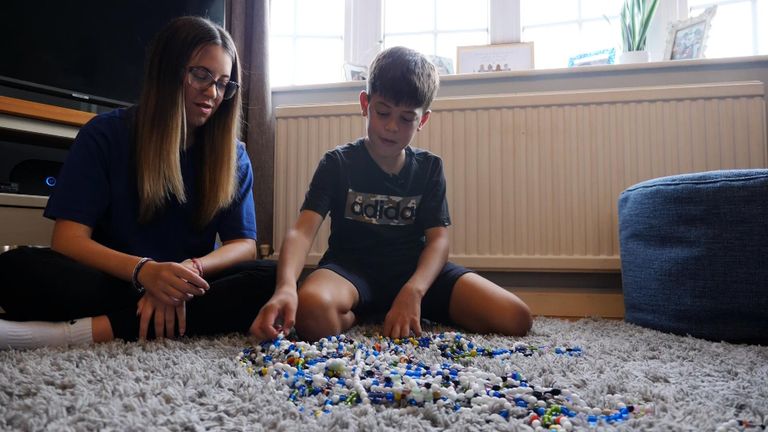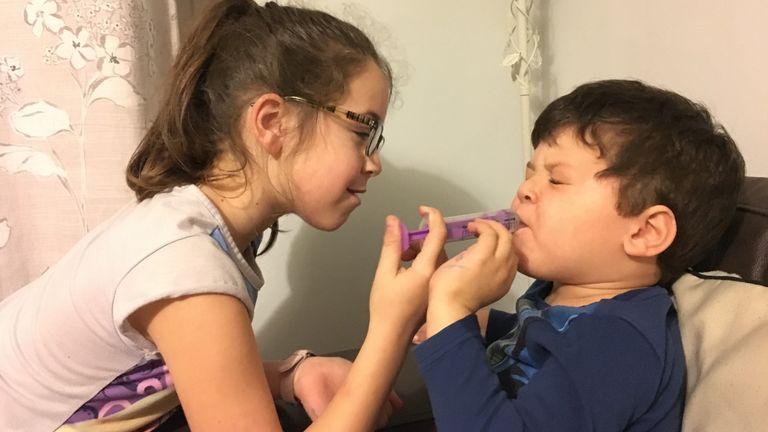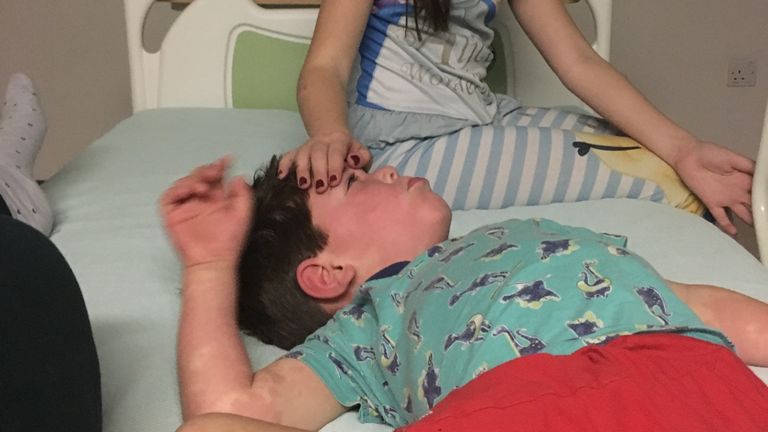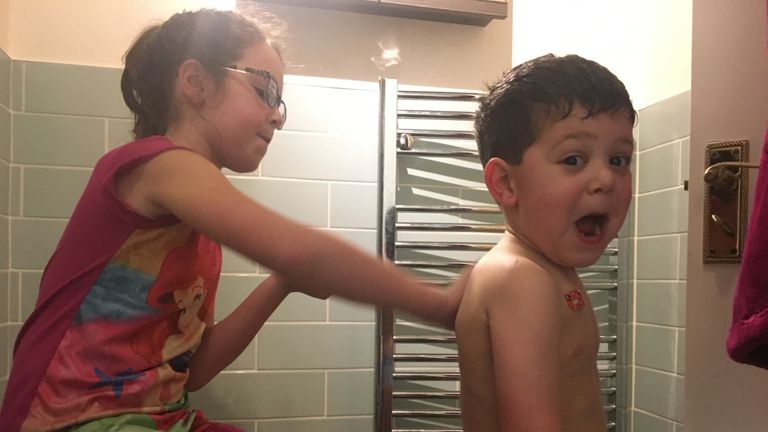“Every time I go to the hospital, I collect one from the play lady,” Oliver says.
Oliver Chapman, 11, is softly spoken. And he is obviously quite shy. This explains why he does not make eye contact when he talks.
He is talking about multicoloured beads and his small fingers are playing with a long chain of them
“The white one means chemo, black one means needles”, he explains, after tipping out the contents of a jar onto a rug on his living room floor.
Each bead is a reminder of every treatment Oliver has received during a life-long battle against a rare form of cancer.
In total, there are 3,000 beads.
Oliver has Langerhans Cell Histiocytosis (LCH). It means some cells normally found on the skin spread to other parts of the body and attack them.
When Oliver was two years old, the LCH attacked his skull, his gut, his liver, spleen and skin.
Oliver is still too traumatised to talk about his ordeal. Instead, his 15-year-old sister Macie explains the toll the treatment has had on her brother, both physically and mentally.
Macie has been with Oliver every step of his very difficult journey. She has been his carer and friend, administering his cancer drugs when nobody else could and reassuringly holding his hand when he was terrified of going to hospital again.
This has taken its toll on her too.
Read more:
The crisis in children’s mental health services
“Lately Oliver has been struggling with his mental health because of all the things he’s been through. I am also having some counselling.
“I think our family’s journey may have been smoother if we’d had mental health support right from the start. It would have made a huge difference to Oliver but it could have helped me as well, particularly when he was in a bad way.”
Macie was only six when Oliver was first diagnosed and began treatment. And as she provided emotional and physical support to him, she had to deal with the stress all by herself.
“I would have liked to talk to someone I could be honest with, about home, school, feelings, rather than worrying my mum. Being in hospital and seeing and hearing what Oliver was going through was very scary.”
But Oliver only started receiving mental health care from his hospital in the last year after he started hearing voices in his head.
Read more from Sky News:
Cancer patients could ‘live six months’ longer, charity says
‘Unbelievable’ drug targeting hot flushes approved in UK
Specialist doctors at Addenbrooke’s Hospital in Cambridge, where Oliver is being treated, agree with Macie about the need to support the mental health of children undergoing long-term physical care. But they say they do not have the means to help.
Dr Rob Heuschkel, clinical lead and consultant gastroenterologist at Addenbrooke’s Hospital, said: “The support that society and the National Health Service is able to give children and families is dire and that needs to be increased.
“We need, not necessarily doctors and senior psychologists, but we need basic well-being and emotional health support for children and young people.”
There is hope that this need will finally be met. Groundwork on the first specialist children’s hospital combining mental and physical health needs in the East of England is slated to begin next year.
But it means across the country, children like Oliver and Macie may still have to rely on charities and each other in their toughest of times.
